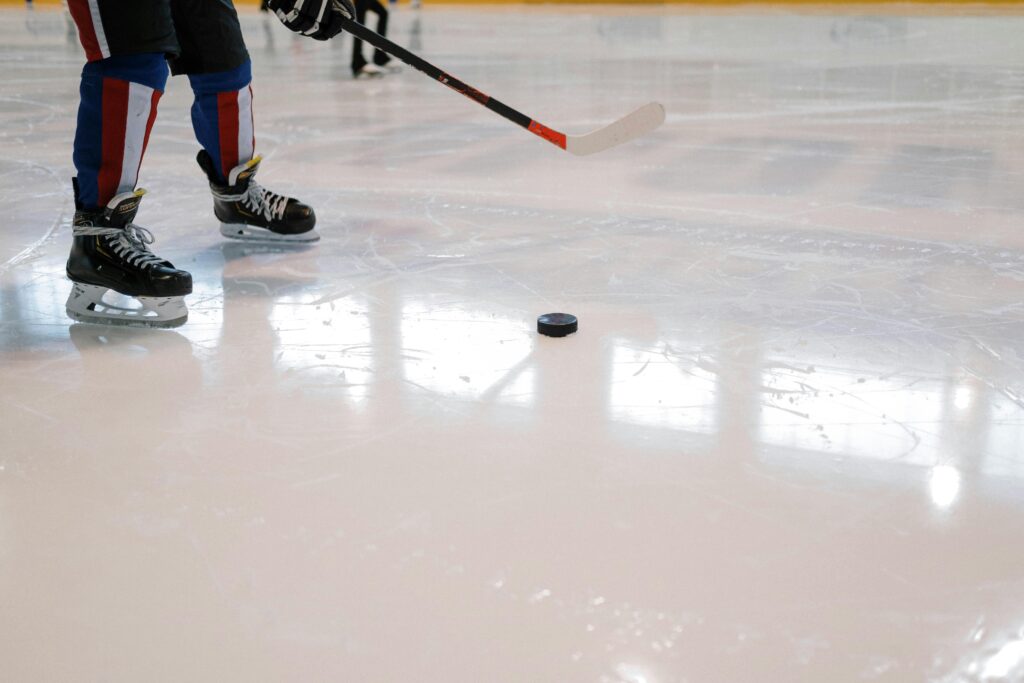As Mike Eruzione high-stepped away in celebration, he knew this was huge. His wrist shot past Soviet goalkeeper Vladimir Myshkin had put his fledgling American side a goal ahead against the experienced and battle-tested Soviets. Eruzione knew his team was on the verge of sporting glory. If they held on to this lead, Finland would await in the gold medal game, where they would be heavy favourites to win.
With only seconds left in the game, the ABC commentator Al Michaels began his famous line, “11 seconds, you’ve got 10 seconds, the countdown going on right now! Morrow, up to Silk. Five seconds left in the game. Do you believe in miracles? YES!”.
On the final whistle as Eruzione was engulfed by his teammates in front of a rapturous New York crowd, the magnitude of their sporting achievement was realised. Their team of kids, few of whom had experience playing in the professional leagues, had beaten a Soviet side comprised of de facto professionals who hadn’t relinquished a gold medal in the previous 20 years.
In the hours and days after the game, the win began to take on a meaning of its own that transcended the world of sport. Eruzione maintained that the team had no idea of the political importance of the game despite it being played during the Cold War. He and his teammates had not engaged with any of the increased anti-Soviet sentiment in the American media. “We had no idea people were watching in the way they were… to us, it was not a political game, it was a hockey game.”
The coverage from the American media had given the discourse around the game a life of its own. The game was billed as the plucky underdogs protecting freedom, up against the morally corrupt, machine-like Soviet team that was intent on promoting ideals that the American public despised.
The public needed something to reassure them that they were still the untouchable world superpower they had historically been. The Soviet invasion of Afghanistan and the Iranian Hostage Crisis had shown cracks in American power. The country, so used to calling the shots on the world stage after World War II, was having its authority questioned. It appeared that nobody wanted to listen to America anymore.
The Miracle on Ice provided the perfect tonic to this crisis of confidence and President Jimmy Carter jumped on the bandwagon. He telephoned the team immediately after the victory, telling them that their win reflected American ideals. He additionally offered them a congratulatory visit to the White House, 3 days before the gold medal game, an unprecedented invitation for a sports team.
The impact of what the team had just achieved was now being realised by Eruzione and his teammates. “Once we got out into the country after the game, we started to realise the win was pretty special and what it meant to people… we started to take even greater pride in what we had just achieved.”
Trump, putin and the new rivalry
After Donald Trump and Vladimir Putin outlined their intention to reinstate ice hockey fixtures between America and Russia this week, the situation could arise again where athlete’s actions reverberate off the field and are utilised to endorse political agendas. Whether the athletes would advocate for this is irrelevant, in these instances they are only pawns for a higher power.
Unlike The Miracle on Ice, these fixtures will attempt to foster unity rather than division. During the Cold War, the two superpowers used these events as a means of promoting their opposing political ideals. Now, they will be used to cultivate goodwill between the two countries.
Trump’s endgame for his presidency remains unclear, but one aspect is certain: reintroduce Russia to global sport and international affairs thereafter. Their two-hour phone call this week was the longest call between leaders of the two nations for many years and aimed to amend the animosity that had developed between the two countries since the start of the Ukraine war.
Russia has historically been a global powerhouse of the sport; many Russian players still are among the best in the NHL and feature prominently despite the war. Yet these players are currently banned from representing their country on the world stage and are thus unable to display the Russian might that Putin wants to project for his country.
Alexander Ovechkin, arguably the greatest Russian ice hockey player, is about to become the NHL’s leading goal scorer of all time. Putin will be furious that one of his country’s finest exports is dominating a sport for the Washington Capitals of all teams, without his country’s name attached to him.
Trump understands the diplomatic power of sport and hockey’s unique position in American society.
Hockey’s geo-political impact has often juxtaposed its cultural impact at home, often operating on the periphery of the four main sports. Its expensive equipment and icy nature, combined with an already saturated American sports market, have regularly alienated a large portion of the American population.
Yet the Miracle on Ice was voted the top sports moment of the 20th century in a poll by Sports Illustrated, despite its perceived lack of popularity. Al Michaels famously stated on commentary during the Miracle on Ice that it was irrelevant that the American public “did not know the difference between a blueline and a clothesline.”
In 2025, hockey holds the same position. The 16.1 million viewers who tuned in to the recent America vs. Canada Championship game were the most for a non-NFL fixture on ESPN+.
This massive attendance was likely a result of Trump and Justin Trudeau’s spat on Twitter. In response to Trump calling Canada the 51st state, the Canadian Prime Minister replied, “You can’t take our country, and you can’t take our game.”
Hockey tends to only ascend to the world stage when there is a geo-political backdrop to the fixture, and Trump will aim to exploit this quirk of the sport.
Although the 47th president is clearly sympathetic to his counterpart and the country he leads, much of his country is not. 61% of American voters said they were more sympathetic to Ukraine than Russia, according to a recent poll by NBC, while just two percent were more sympathetic to Russia.
Trump and Putin will need to organise a significant number of games to improve these numbers in favour of Russia, but the power of sport to influence public perception cannot be underestimated.
Images of Trump and Putin applauding each country’s anthems while sitting together as their countries’ teams play out a competitive but good-natured encounter in the rink could have a resounding effect on the perceptions of either country. There has been an increasingly pro-Russian sentiment in some parts of America since Trump was inaugurated, and these fixtures will tap into that.
The Miracle on Ice changed America’s perception of itself as a world power at a time when public morale was at an all-time low, displaying the power of a sports match to change public perception of geo-politics. Trump and Putin will aim to continue the legacy of sport in this way, in a bid to further their own political agendas.

